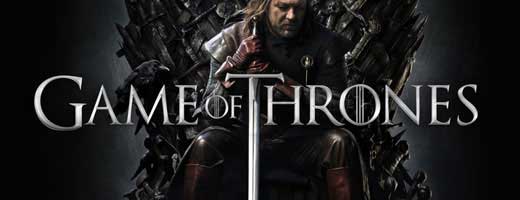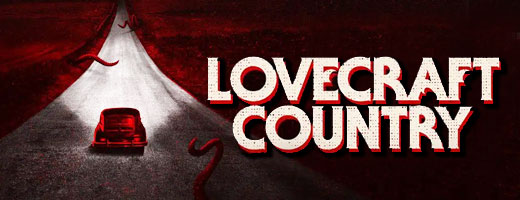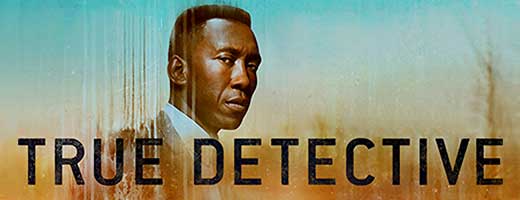Jon Snow – He GOT His Perfect Ending

Have a Theory? Share It Now!
I’ve seen a fair share of complaints concerning Jon Snow’s ending and I wanted to take a moment to defend it. Jon is my second favorite character – second only to Tyrion “Kingmaker” Lannister – and I am deeply satisfied with Jon’s story.
Jon’s ending delivers on George RR Martin’s promise of a bittersweet conclusion to his tale and manages to subvert expectations, not for the sake of doing so, but in service to giving Jon the send-off he deserves. Gene mentioned the Hero’s Journey as a typical character arc. Jon’s story certainly fits that trajectory – he’s a secret king, disguised as a bastard, who rises as a leader and hero for just and honorable reasons. He unites the forces of men to save the world from the undead. He’s the heir to the throne but doesn’t want the power. Everyone knows he’ll rule justly. In almost any other fantasy story we’d get one of two endings – the hero dies tragically to save the world and is remembered as a legend OR the hero defeats the great evil and ascends to the throne (think Aragorn).
Here, the hero does, in fact defeat the great evil, but it’s Game of Thrones, not Lord of the Rings. The great evil is the woman Jon loves because people are complex. He defeats Dany, not through honor but by betraying her through, frankly, deception because even someone like Jon Snow has moments of pragmatism. And as for Jon’s arc, it’s over the moment Dany dies. Right then and there, Jon’s “special destiny” is fulfilled and he’s taken right off the Hero’s Journey. He’s not the chosen one anymore. He’s a political bargaining chip. He’s a just like any other noble born prisoner – what happens to him henceforth is a result of statecraft and negotiation, not destiny and prophecy. He’s not given the throne like a hero, he’s not executed like a martyr – because both of these are politically impossible – but he’s exiled which, on its face, is maybe the least climactic ending possible for a man who came back from the dead to save the world. Jon may be remembered as a hero or as a traitor, but his relevance will eventually fade, as he has been politically neutralized in the new world order. Again, this is Game of Thrones and this is the bitter side of bittersweet.
So what about the “sweet” part? Surely we didn’t follow Jon’s journey from mopey bastard to hero just to see him freeze his balls off for eternity, right? Well, let’s take a minute and consider what would have happened to Jon under alternate endings.
It’s no secret Jon would have hated being King. He had every opportunity to take it and, even honor notwithstanding, he simply didn’t want the Iron Throne. This tracks with who he is as a person. He ascended into leadership at the Night’s Watch because he was nominated and elected – he served as a leader because someone had to, because his brothers needed him to, and because no one else could make the choice to save the Free Folk from the dead. But my God, Jon managed to be the most miserable person at the Wall, which is a pretty high distinction as far as misery goes. He led well, but hated leading. After Jon dies and is brought back, his immediate instinct is to head off alone to somewhere warm. He is, yet again, forced into a leadership role to save his family and the North from the Bolton’s. Then, yet again, forced into leadership by proclamation of the people – KING IN THE NORTH – and even still by the impending threat of the dead. Leadership has always been thrust upon Jon, who excelled at it, but Jon himself never once wanted nor sought it. In Season 7 he admits to hating what he is good at. He does it out of a sense of duty – he is, in many ways, a slave to his sense of obligation and this is the only reason he leads. So suffice to say, Jon ascending as “Aegon the Sixth” would have been miserable for him.
If Jon had been permitted to leave the now Six Kingdoms to live in the now independent North, he would have been thrust into power once more. When Sansa says goodbye to Jon, she comments that the North lost its King. She’s right. Had Jon gone back to Winterfell, he’d have been named King yet again. Even if he refused – which he likely would not have done, under a compulsion to serve his people – his life would be constantly filled with nudges and reminders that he could be the rightful king of the North or of Westeros.
So let’s consider where Jon is now. First off, to be clear, it is evident (to me at least) that Jon is not staying with the Night’s Watch – Jon is the sole person in black going north with a tribe of Wildlings. The implication is that Jon is leaving with them. It’s his one moment of choice – he abandons his so-called duty to live out his sentence and goes to his real home. In fact, it’s a moment of choice for everyone. The Free Folk, who for so long wanted to be South of the Wall, are going back home to the true North. So Jon’s beyond the Wall. He’s with his friend Tormund and his Direwolf Ghost – the last living Direwolf and symbol of a Stark’s connection to the North. Jon is finally where he was happiest during our entire time with him – that’s right, Jon was happiest among the Wildlings.
Jon’s time with the Free Folk was hard for him in a very large part because it was the first place he felt he fit in. In the books it is made extremely clear – even more so than in the show – that Jon very nearly betrays the Night’s Watch to stay with the Free Folk, not just for Ygritte, but because of his respect for Mance and the Wildling way of life. Jon only comes back to Westeros out of duty, but given his preference, he’d have stayed in that cave forever with Ygritte. Jon loved his time with the Free Folk because, with them, a man was free to be himself, authentically and openly without a need for guile and without regard to hierarchy. Now, finally, after having his life defined by the label of “bastard” or “king”, Jon can live in a world where such labels have no meaning. Jon is given the opportunity to be free of a destiny written for him to forge a destiny he can choose.
Ken Listwak
Subscribe Now
- Android: https://shatontv.com/game-of-thrones-android
- Apple/iTunes: https://shatontv.com/game-of-thrones-itunes
Help Support the Podcast
- Support with Paypal – https://shatontv.com/paypal
- Support With Venmo – https://venmo.com/ShatPodcasts
- Shop / Merchandise: https://shatontv.com/shop
- Shop Amazon With Our Affiliate Link – https://www.amazon.com/?tag=shatmovies-20
- Sponsor’s Listener Survey – https://shatontv.com/survey
- Leave an iTunes Review – https://shatontv.com/game-of-thrones-review
- Leave a Voicemail – (914) 719-SHAT – (914) 719-7428
- Feeds & Social Media – https://shatontv.com/subscribe-and-follow/
- Checkout our Movie Podcast – http://shatthemovies.com
- Theme Song – “Seven Nation Army (Epic Orchestral Cover)” – Ciaran Burch






